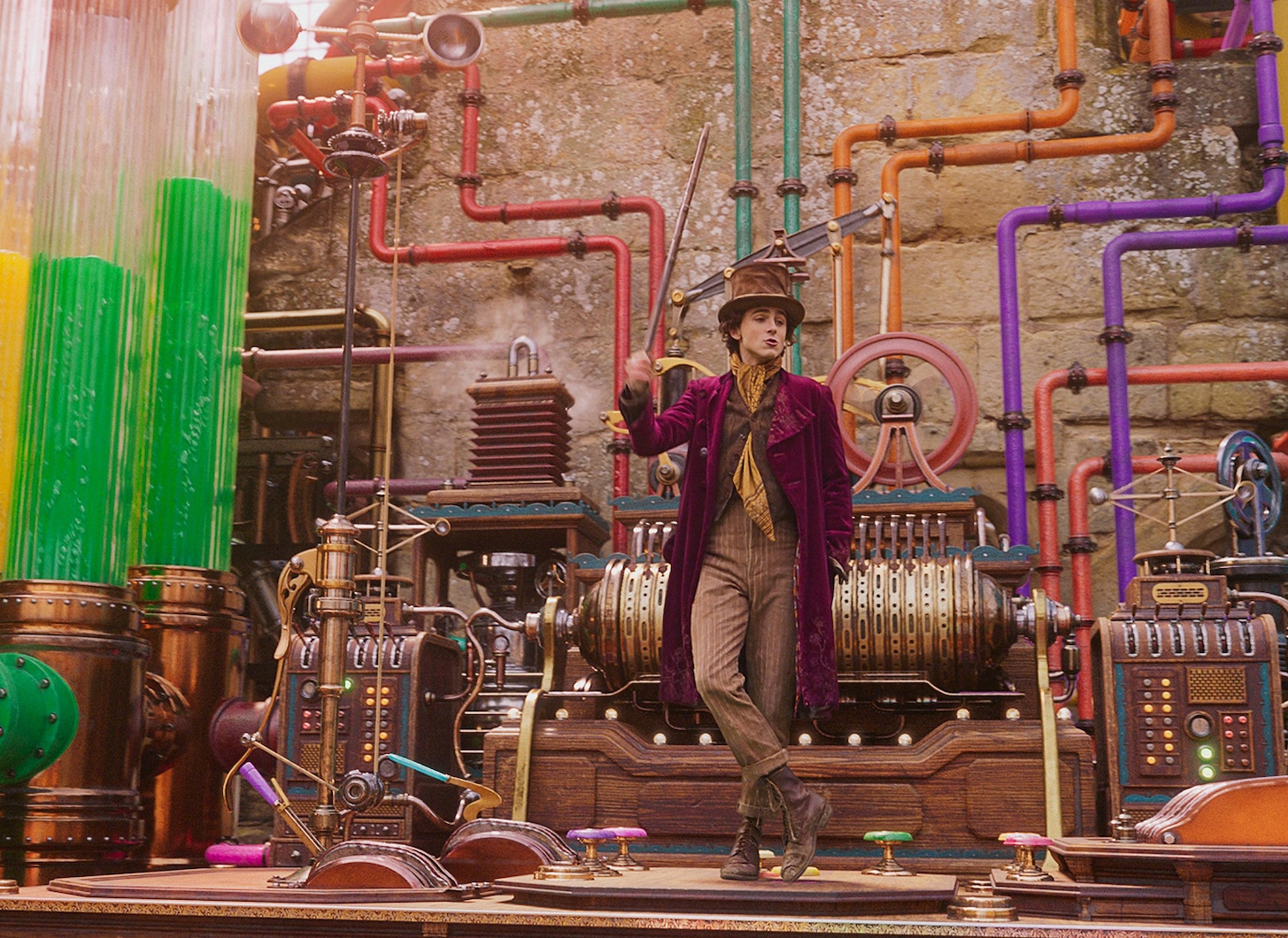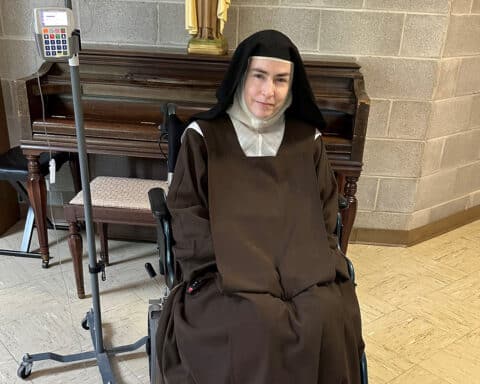NEW YORK (OSV News) – Since his first appearance in author Roald Dahl’s 1964 children’s novel, “Charlie and the Chocolate Factory,” magical confectioner Willy Wonka has become an iconic cultural figure. That applies both to the printed page and to the big screen where he has been played — in very different keys — by Gene Wilder and Johnny Depp.
It’s been nearly two decades since Depp’s controversial 2005 portrayal of the character. So perhaps another bite at the apple is in order. With the origin story “Wonka” (Warner Bros.), that opportunity goes to Timothée Chalamet.
What surrounds Chalamet’s youthful, goodhearted aspiring chocolatier is a generally charming musical fantasy marred by an ill-considered Catholic-themed subplot. The latter material skirts the uncomfortable line between mere silliness and outright irreverence so that, while mature and well-catechized moviegoers may easily shrug it off, impressionable viewers may not.
Swindled
With a small store of money in hand, Willy arrives in a fictional big European city and sets out to achieve his candy-making ambitions. He’s immediately swindled, however, by a duo of Dickensian villains: scheming laundry owner Mrs. Scrubbit (Olivia Colman) and her oafish minion, Bleacher (Tom Davis).
Having used up the coins he was going to invest in his new enterprise, Willy has nowhere to stay on his first night in town. Mrs. Scrubbit offers him a room on credit and has him sign a contract. But Willy — who turns out to be illiterate — cannot read the document and so does not realize that a ridiculous list of extra charges will leave him hopelessly indebted to his hostess.
The result is that Willy is virtually imprisoned as Mrs. Scrubbit’s drudge, along with an ensemble of other people who’ve made the same mistake he did. The silver lining to this situation is that he quickly befriends his fellow sufferers. Indeed, a young orphan nicknamed Noodle (Calah Lane) swiftly becomes Willy’s staunchest ally.
But Mrs. Scrubbit and Bleacher are not Willy’s only opponents. His aspiration to open his own business arouses the ire of a trio of potential competitors: Arthur Slugworth (Paterson Joseph) and Messrs. Prodnose (Matt Lucas) and Fickelgruber (Mathew Baynton). Aided by the unnamed local chief of police (Keegan-Michael Key), they aim to hinder Willy’s plans from the get-go.
Catholic subplot
Unabashedly old-fashioned and touchingly sentimental in most respects, director and co-writer (with Simon Farnaby) Paul King’s glossy riff on Dahl’s creation randomly introduces moral weakling Father Julius (Rowan Atkinson) into the mix. Corrupted by his love of candy into assisting the bad guys, Father Julius is backed up by a host of equally frail monks.
The sequences in which these figures feature involve an elevator to the underground lair of Slugworth and Co. disguised as a confessional and the sight of Father Julius, dressed in full vestments, opening a funeral Mass with the sign of the cross — recited in Latin, no less. (Perhaps Father Julius has been too busy scarfing bonbons to read “Traditionis Custodes.”)
Where Atkinson goes, nonsense generally follows. So there’s a reasonable presumption that nothing meaningful, satiric or otherwise, is intended by all this.
Yet, at a minimum, it’s obviously distasteful to put sacred things to such uses. This poor aesthetic choice, moreover, makes “Wonka” morally unsuitable for the youngsters at whom it’s at least partially, and perhaps primarily, aimed.
The film contains a negative portrayal of Catholic characters, frivolous treatment of sacramental practices, light scatological and anatomical humor and a mild oath. The OSV News classification is A-III — adults. The Motion Picture Association rating is PG — parental guidance suggested. Some material may not be suitable for children.





